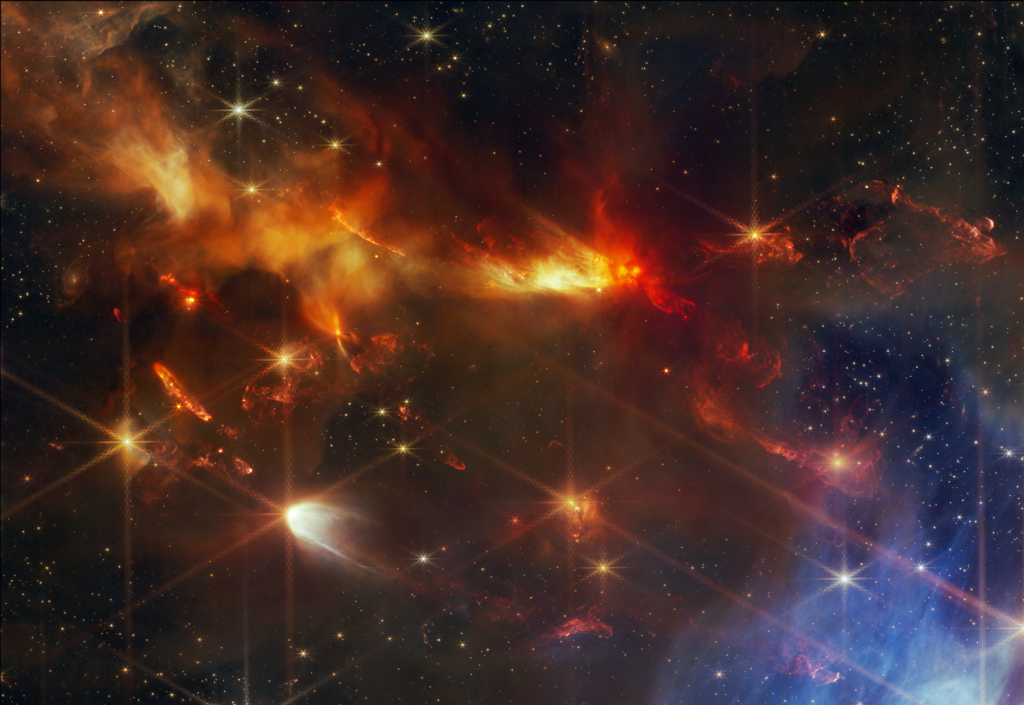Ways4eu WordPress.com Blog
SPA View of ways4eu.wordpress.com
Protostellar Outflows in Serpens
By iftttauthorways4eu
on Thu Jun 27 2024
Jets of material blasting from newborn stars, are captured in this James Webb Space Telescope close-up of the Serpens Nebula. The powerful protostellar outflows are bipolar, twin jets spewing in opposite directions. Their directions are perpendicular to accretion disks formed around the spinning, collapsing stellar infants. In the NIRcam image, the reddish color represents emission from molecular hydrogen and carbon monoxide produced as the jets collide with the surrounding gas and dust. The sharp image shows for the first time that individual outflows detected in the Serpens Nebula are generally aligned along the same direction. That result was expected, but has only now come into clear view with Webb’s detailed exploration of the active young star-forming region. Brighter foreground stars exhibit Webb’s characteristic diffraction spikes. At the Serpens Nebula’s estimated distance of 1,300 light-years, this cosmic close-up frame is about 1 light-year across. via NASA https://ift.tt/FwobCyg
